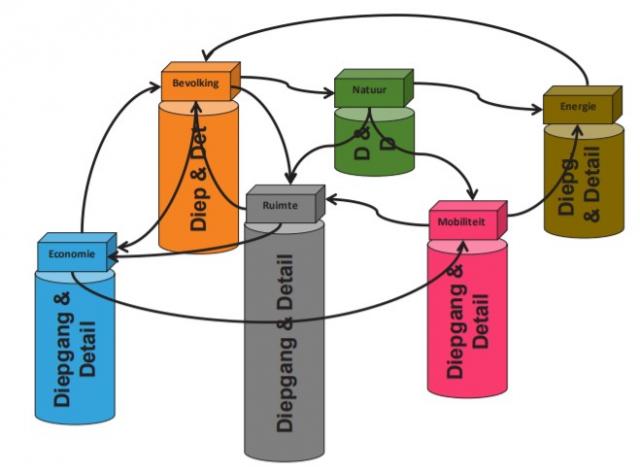System Dynamics modeling is aimed at developing solutions for societal problems by providing insight in the underlying structures of complex systems of interacting sub-systems and variables. This type of model allows to anticipate on the potential impact of future changes in the system which are often overlooked. The added value is in the computational power, applicability in interactive sessions with stakeholders and usefulness as platform for integration of domain ranging from water management, energy, and land use to mobility, for which the existing instruments are less suitable.
Commissioned by the environmental reporting in Flanders (MIRA), VITO developed a prototype or blueprint of a "system dynamic model Flanders". In this model, the feedbacks between variables for 10 themes (Demography, Economy, Mobility, Energy, Space use, Agriculture & Food, Water, Air, Nature & Environment, and Waste & Materials) are considered. The model can be run completely independently to calculate the time-dependent development of the total “System Flanders” for the period 2010-2050 using different scenarios.
VITO coordinates the European project COASTAL (h2020-coastal.eu), focusing on business models and model supported road maps for land-sea integration and economic development in European coastal areas and the hinterland. COASTAL uses a combination of system-dynamic modeling and co-creation techniques with stakeholders.
System models are also perfect tools to support foresight studies for environmental policy. But also, for example, to calculate the impact of election programs and / or as a means of communication in participation processes where they can reveal to stakeholders with diverging interests the impact of their choices on each other.
Commissioned by: Flemish environment agency
2016

